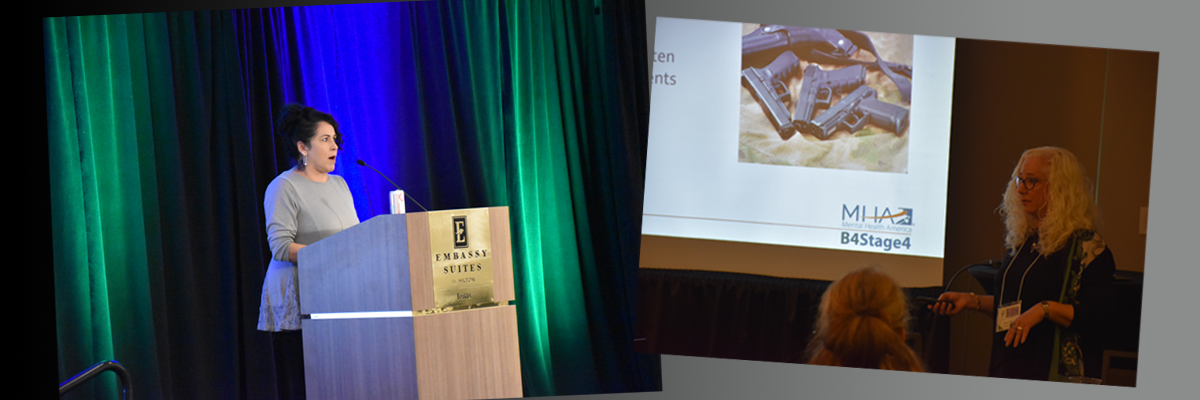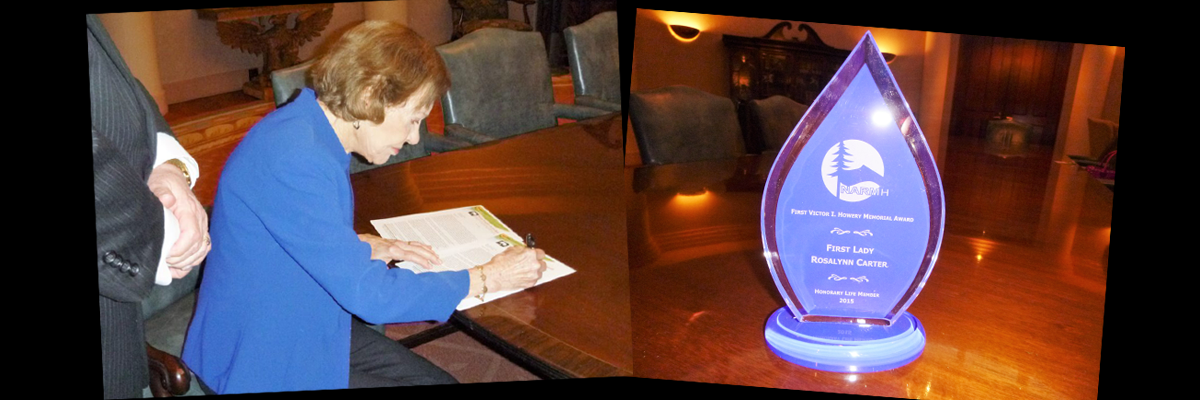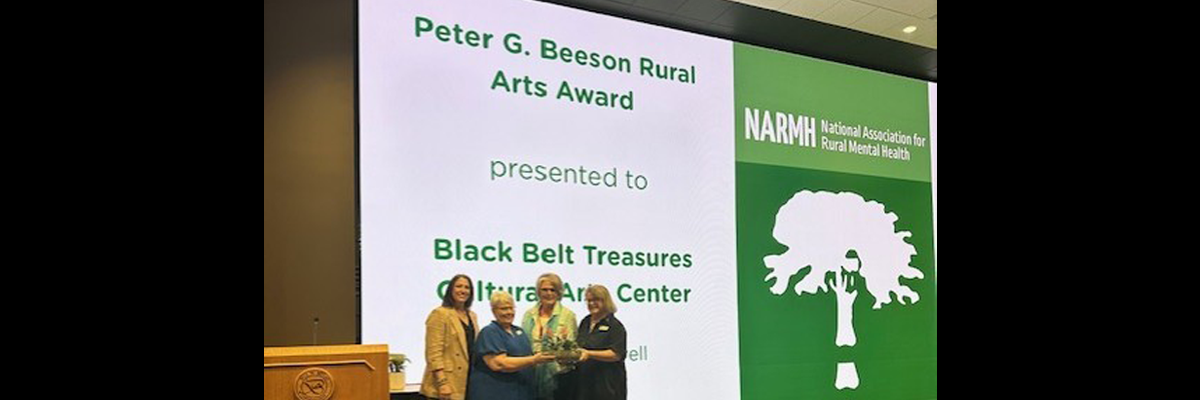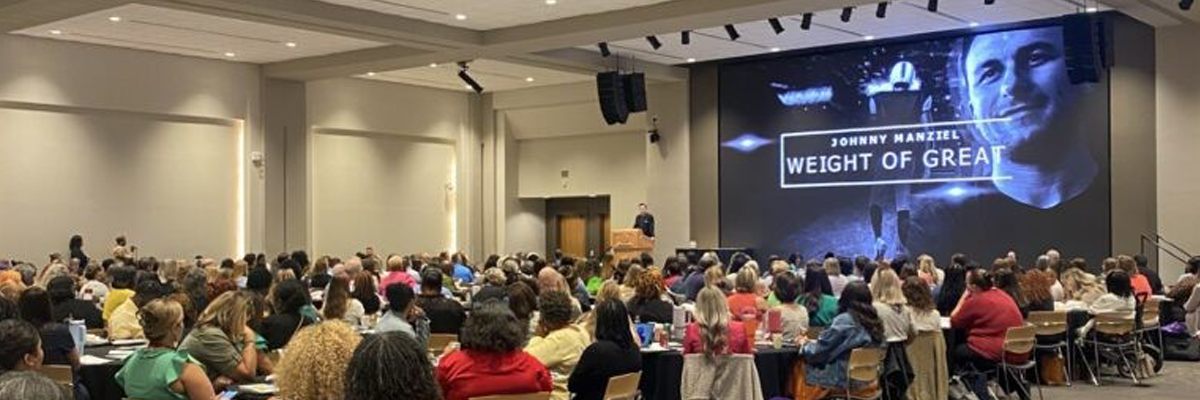About NARMH
Vision Statement
The National Association for Rural Mental Health seeks to promote the linkage of the diverse voices of rural mental health, through its activities as a membership organization. As a national organization, NARMH provides a forum for rural mental health professionals, advocates, and consumers to identify issues and problems, share innovative solutions and model programs, and speak with a shared voice on issues of rural mental health concern.
As an organization with a historical heritage of education, NARMH’s sponsorship of an annual conference, regional workshops, and publication of written information is focused upon increasing the body of knowledge related to rural mental health. NARMH’s educational efforts will continue to link the myriad of rural issues and experience into a connected fabric of understanding.
NARMH shall provide a common voice for rural mental health within national and state public policy arenas. Through the information sharing with other organizations, government agencies, federal and state leaders, and others, NARMH will seek to ensure rural America is taken into account in the formation of private and public mental healthcare policy.
Mission Statement
"Linking Voices to Promote Rural Mental Health."
NARMH carries out this mission through electronic and print communication, an annual national conference, participation in national policy making, and special projects.
History
The National Association for Rural Mental Health (NARMH) was founded in 1977 in order to develop and enhance rural behavioral health and substance abuse services and to support mental health providers in rural areas.
NARMH has consistently and faithfully represented the mental health needs of rural Americans and the interests of its members in a variety of national public policy arenas during the 1970s, 1980s and into the 1990s. Throughout this time, NARMH has carried out its mission of “Linking Voices to Promote Rural Mental Health” through national conferences, publications, and special events.
NARMH evolved from a Summer Study Program (SSP) on Rural Mental Health at the University of Wisconsin-Madison, established in 1973 by Victor I. Howery through the University of Wisconsin-Extension Service with support from the National Institute of Mental Health. The SSP was a response to the growing recognition of special issues and concerns facing persons delivering mental health services to rural populations. Before the SSP, rural mental health was little more than an evolving academic literature with a number of unconnected researchers and practitioners trying to grapple with the problems and prospects of understanding and meeting mental health needs of rural populations.
A sense of community rapidly developed among the participants in the SSP and, in 1975, a committee was formed to investigate the feasibility of forming an association for rural mental health. An Interim Council, appointed in 1976, proposed by-laws and the first officers to the Association were elected in 1977. In the spring of 1977, the Association published the first issue of Rural Community Mental Health. During the mid-1970s the Association’s Board was successful in getting national attention for rural mental issues. A “Task Panel on Rural Mental Health,” chaired by Victor Howery and including a significant representation from the young Association, was created as part of President Carter’s Commission on Mental Health. Rosalyn Carter, the First Lady, was an active member of the Task Panel and received the first Howery Award in recognition of her many contributions. The work of this Task Panel resulted in the first national public policy attention directed specifically at rural mental health and was the impetus for a number of subsequent initiatives by the National Institute of Mental Health.
The Association’s Board continued to provide Dr. Howery with program consultation for the annual SSP until his untimely death in 1978. At this time the Victor I. Howery Memorial Award, which is given annually to an individual who has made significant contributions to the field of rural mental health, was established by the Howery family. The SSP gradually evolved into the Association’s Annual Conference. During this period the Association’s membership rose from around 100 to nearly 500. In 1979, the name of the Association was changed to the National Association for Rural Mental Health (NARMH) to reflect what the Board believed to be an appropriate role for the group. In 1981, NARMH was formally incorporated under the laws of Wisconsin. In 1984, the NARMH Board voted to become affiliated with the National Council of Community Mental Health Centers. The decision to affiliate was based on the common interest of the two organizations and the perceived ability to more effectively influence national policy through the relationship. In 1985 NARMH began holding its annual conference at locations other than Madison, Wisconsin.
During the 1980s, NARMH gained national recognition as a leader in addressing mental health issues related to the Farm Crisis. NARMH joined other groups such as the Rural Family Issues Coalition in successfully advocating for increased federal spending on rural mental health services, rural mental health demonstration grants, and rural mental health research. NARMH Board members served on the National Mental Health Association’s National Action Commission on the Mental Health of Rural Americans, the National Association of State Mental Health Program Directors’ (NASMHPD) President’s Special Task Force on Mental Health Response to Farm and Rural Stress, and other groups developing national policy recommendations. NARMH members were on the front line delivering innovative services such as Stress Country Style and conducting ground breaking research on the impact of the farm crisis on mental health, the utilization of mental health services by farmers and farm families, and the response of the mental health community to the farm crisis. NARMH was a partner in the national evaluation of the rural mental health demonstration grants. NARMH representatives testified on numerous occasions before congress, spoke to national associations and advisory groups, and presented at national conferences conveying insight, awareness, and compassion about the impact of the farm crisis on the mental health of rural Americans. NARMH publications served as a primary vehicle to disseminate the many innovations in mental health services and knowledge acquired in responding to the Farm Crisis. NARMH continues to work in support of rural persons affected by the changing farm economy and NARMH members are applying lessons learned from the farm crisis to work with displaced coal miners, loggers, and disaster victims.
The early 1990s was the era of health care reform and increasing national prominence for NARMH. In 1990, NARMH moved its national affiliation and contract for administrative support from the National Council of Community Mental Health Centers to the National Rural Health Association. NARMH was a key player in the Clinton Administration’s health care reform efforts. NARMH Board Members made special invited presentations to the Mental Health Work Group (Chaired by Tipper Gore) and the Rural Health Cross Cutting Work Group. NARMH represented rural mental health at the Robert Wood Johnson national invitational Conference on Health Care Reform in Rural Areas. NARMH was a key participant in a wide variety of national policy meetings and groups such as:
- National Institute of Mental Health’s national meeting on the future of rural mental health research, the Implementing Health Care Reform in Rural American Conference.
- Center for Mental Health Services (CMHS) Ad Hoc Working Group for Non-Physician Providers of Mental Health Services in Rural Areas.
- NASMHPD/CMHS Focus Group on Rural Mental Health.
- National Rural Telemedicine Workshop, the Advisory Board for the Study of Health Professions Distribution, Training, and Service Models to Meet Rural Health Care Needs.
- Planning Committee for the National Conference on American Indian and Alaskan Native Mental Health Services Delivery Issues for Seriously Mentally Disabled.
NARMH also became a regular participant in the annual Carter Center Symposium on Mental Health. NARMH joined with over 40 other mental health organizations and interest groups to form the Mental Health Liaison Group which develops recommendations on national mental health policy and advocates for mental health at the federal level. NARMH, in partnership with the CMHS, sponsored a national focus group on “Rural Mental Health in an Era of Reform.” NARMH developed and published a series of policy position papers (Where We Stand) on national issues like “managed care.”
In 1992, NARMH moved its organizational management from NRHA to Behavioral Health Alternatives in Wood River, Illinois while maintaining a close collaboration with NRHA in public policy areas. In the summer of 1992, NARMH added a newsletter (The Party-Line) to its publications. In conjunction with its 1993 national conference, NARMH co-sponsored with the CMHS a national mental health public forum entitled “Taking Rural Into Account.” NARMH worked with the American Psychological Association and the HHS National Health Services Corps (NHSC) to include other mental health disciplines besides psychiatry as eligible to receive NHSC scholarships and incentives to practice in rural and undeserved areas. NARMH worked with the NASMHPD Research Institute to publish a special issue of their journal (Outlook) on Rural Mental Health Research. NARMH also worked with State Health Reports to publish a special issue entitled “Mental Health Services in Rural America.” NARMH was an active collaborator in the development of a major monograph (“Mental Health and Rural America: 1980 – 1993) reviewing the rural mental health literature. During the 1990s, two NARMH Board members were appointed to the National Rural Health Advisory Committee and other board members attained national prominence in developing the mental health applications of telemedicine. NARMH successfully lobbied for the creation of a rural mental health technical assistance center focused on frontier service areas and continues to be a partner in the operations of the Frontier Mental Health Services Resources Network.
In 1996, NARMH created a new national award, “The NARMH Going-to-Bat Award,” which is given annually to a person(s) who has been a strong advocate of rural mental health. During 1997, NARMH collaborated with CMHS in an extensive process of focus groups, conference feedback sessions, and review processes for the purpose of developing a vision for rural mental health in the year 2000 and beyond.
In September of 1997, NARMH moved its national office to St. Cloud, Minnesota under the management of The Odyssey Group. This move furthered the NARMH mission and strengthened the organization’s image and influence. In 2013, NARMH moved its national office to Washington DC when it entered into an organizational management agreement with the National Association of County Behavioral Health and Developmental Disability Directors (NACBHDD), while retaining conference planning services with the Odyssey Group. NARMH as an affiliate of NACBHDD increased political connectedness with national policy-making processes.
For the 21st Century, NARMH is improving member services, encouraging greater consumer involvement, maintaining a strong commitment to its national conference, enhancing its publications, actively pursuing new alliances with health care corporations, participating in pioneering work in telehealth, preparing a special Anniversary issue of Rural Community Mental Health, presenting at national conferences, and representing its members in a variety of national public policy arenas. NARMH is looking forward to many more decades of national leadership and linking voices to promote rural mental health.








